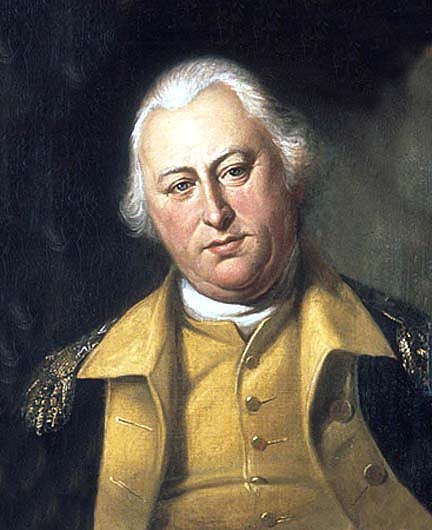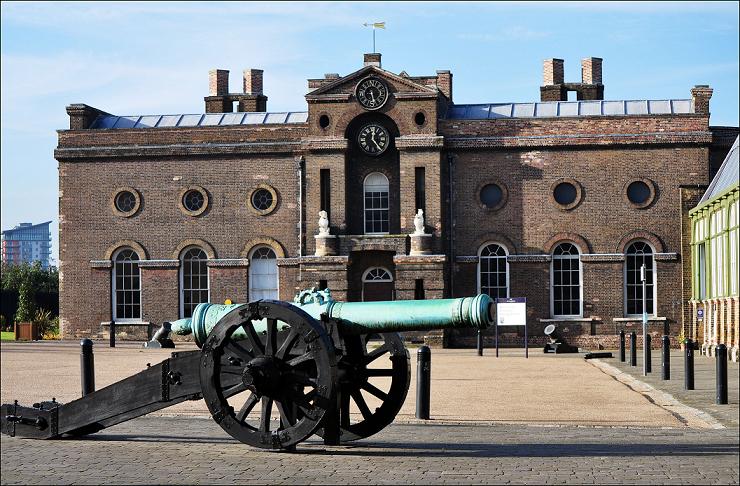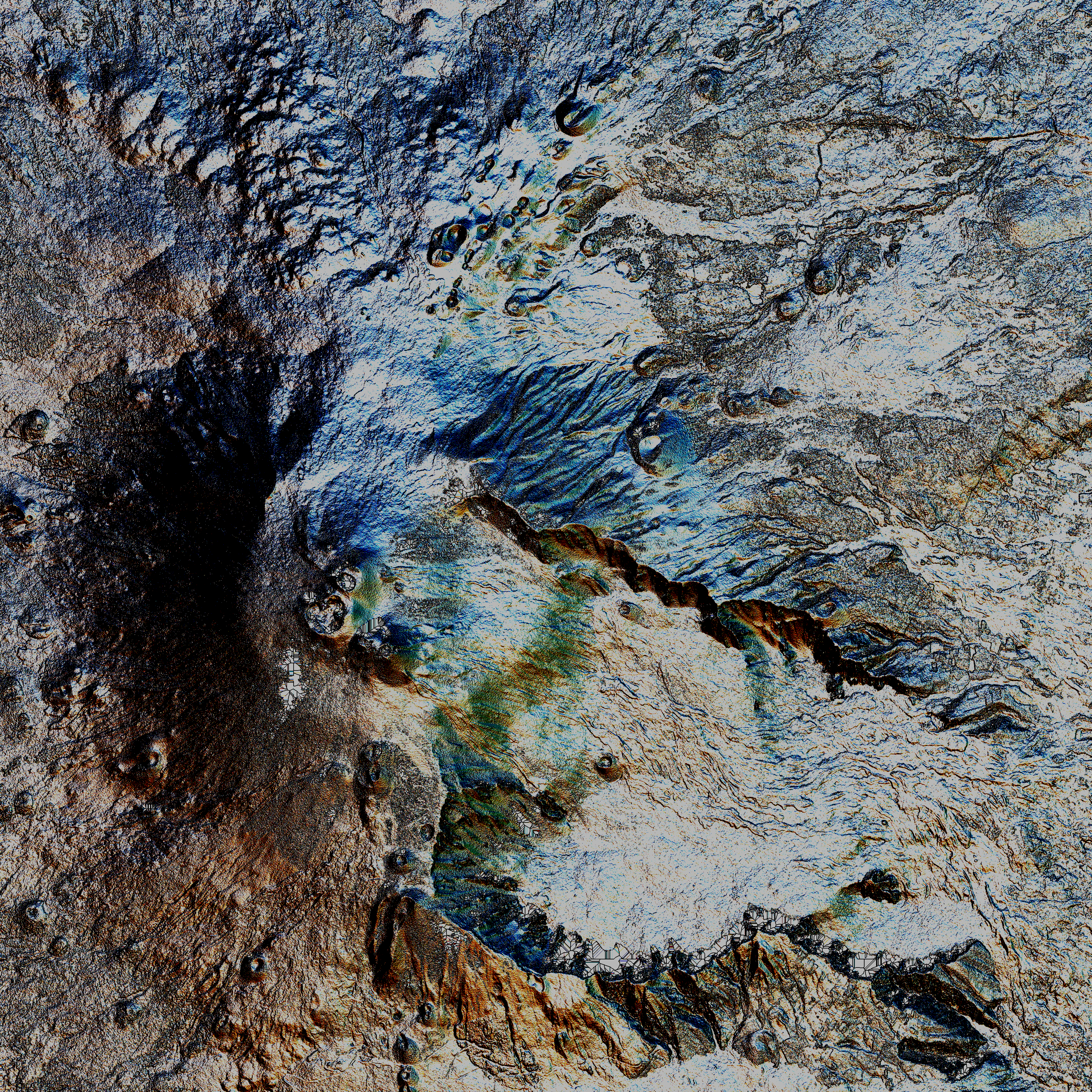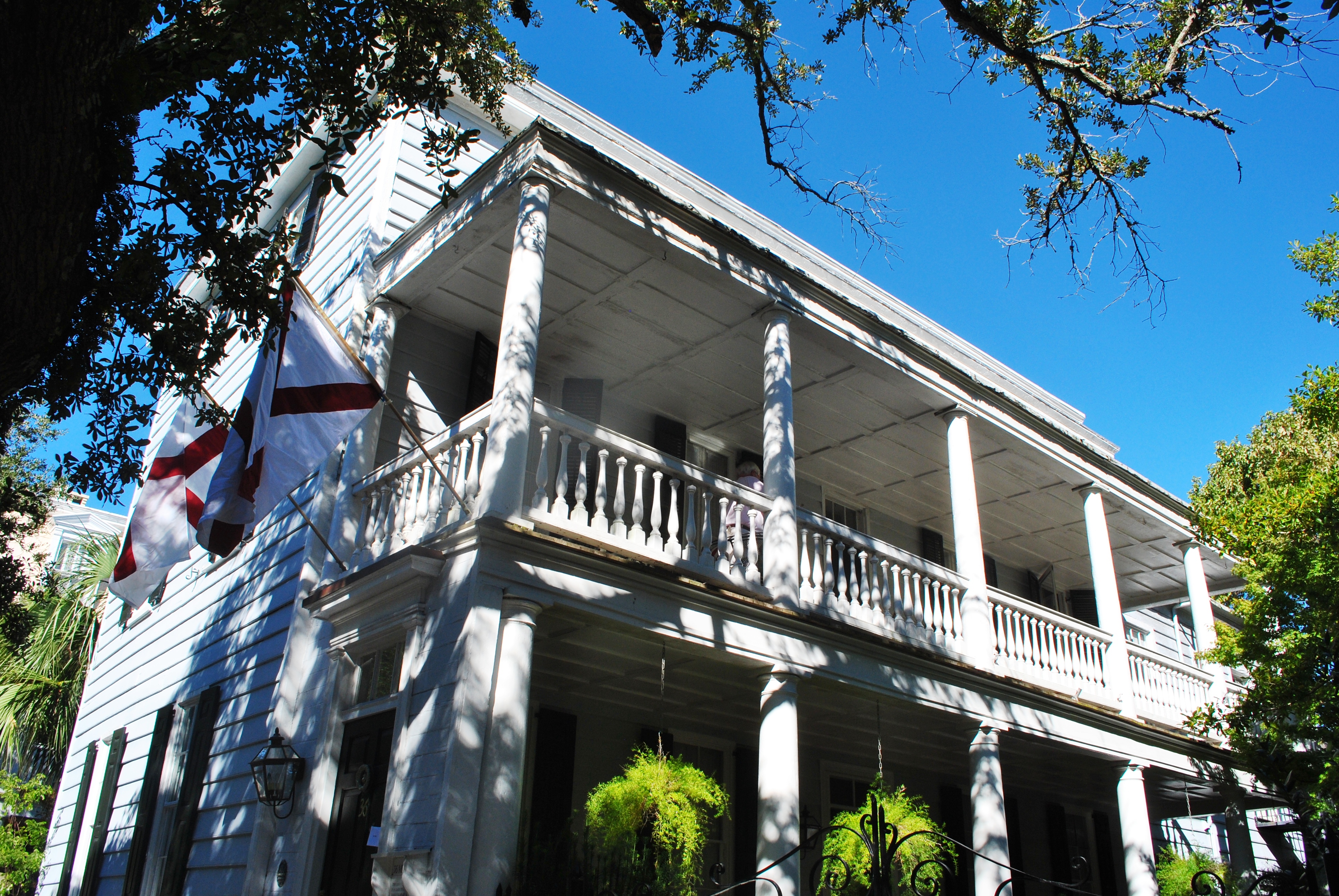|
Joel Roberts Poinsett
Joel Roberts Poinsett (March 2, 1779December 12, 1851) was an American physician, diplomat and botanist. He was the first U.S. agent in South America, a member of the South Carolina legislature and the United States House of Representatives, the first United States Minister to Mexico, a Unionist leader in South Carolina during the Nullification Crisis, Secretary of War under Martin Van Buren, and a co-founder of the National Institute for the Promotion of Science and the Useful Arts (a predecessor of the Smithsonian Institution). Early travels Joel Roberts Poinsett was born in 1779 in Charleston, South Carolina, to a wealthy physician, Elisha Poinsett, and his wife Katherine Ann Roberts. He was educated in Connecticut and University of Edinburgh, gaining expertise in languages, the law, and military affairs. Touring in Europe In 1800 Poinsett returned to Charleston hoping to pursue a military career. His father did not want his son to be a soldier. Hoping to entice his son ... [...More Info...] [...Related Items...] OR: [Wikipedia] [Google] [Baidu] |
United States Secretary Of War
The secretary of war was a member of the U.S. president's Cabinet, beginning with George Washington's administration. A similar position, called either "Secretary at War" or "Secretary of War", had been appointed to serve the Congress of the Confederation under the Articles of Confederation between 1781 and 1789. Benjamin Lincoln and later Henry Knox held the position. When Washington was inaugurated as the first President under the Constitution, he appointed Knox to continue serving as Secretary of War. The secretary of war was the head of the War Department. At first, he was responsible for all military affairs, including naval affairs. In 1798, the secretary of the Navy was created by statute, and the scope of responsibility for this office was reduced to the affairs of the United States Army. From 1886 onward, the secretary of war was in the line of succession to the presidency, after the vice president of the United States, the Speaker of the House of Representatives, t ... [...More Info...] [...Related Items...] OR: [Wikipedia] [Google] [Baidu] |
Royal Military Academy, Woolwich
The Royal Military Academy (RMA) at Woolwich, in south-east London, was a British Army military academy for the training of commissioned officers of the Royal Artillery and Royal Engineers. It later also trained officers of the Royal Corps of Signals and other technical corps. RMA Woolwich was commonly known as "The Shop" because its first building was a converted workshop of the Woolwich Arsenal. History Origins in the Royal Arsenal An attempt had been made by the Board of Ordnance in 1720 to set up an academy within its Arsenal (then known as the Warren) to provide training and education for prospective officers of its new Regiment of Artillery and Corps of Engineers (both of which had been established there in 1716). A new building was being constructed in readiness for the Academy and funds had been secured, seemingly, through investment in the South Sea Company; but the latter's collapse led to plans for the Academy being placed on hold. After this false start, the aca ... [...More Info...] [...Related Items...] OR: [Wikipedia] [Google] [Baidu] |
Napoleon I
Napoleon Bonaparte ; it, Napoleone Bonaparte, ; co, Napulione Buonaparte. (born Napoleone Buonaparte; 15 August 1769 – 5 May 1821), later known by his regnal name Napoleon I, was a French military commander and political leader who rose to prominence during the French Revolution and led successful campaigns during the Revolutionary Wars. He was the ''de facto'' leader of the French Republic as First Consul from 1799 to 1804, then Emperor of the French from 1804 until 1814 and again in 1815. Napoleon's political and cultural legacy endures to this day, as a highly celebrated and controversial leader. He initiated many liberal reforms that have persisted in society, and is considered one of the greatest military commanders in history. His wars and campaigns are studied by militaries all over the world. Between three and six million civilians and soldiers perished in what became known as the Napoleonic Wars. Napoleon was born on the island of Corsica, not long aft ... [...More Info...] [...Related Items...] OR: [Wikipedia] [Google] [Baidu] |
Louis XVI
Louis XVI (''Louis-Auguste''; ; 23 August 175421 January 1793) was the last King of France before the fall of the monarchy during the French Revolution. He was referred to as ''Citizen Louis Capet'' during the four months just before he was executed by guillotine. He was the son of Louis, Dauphin of France, son and heir-apparent of King Louis XV, and Maria Josepha of Saxony. When his father died in 1765, he became the new Dauphin. Upon his grandfather's death on 10 May 1774, he became King of France and Navarre, reigning as such until 4 September 1791, when he received the title of King of the French, continuing to reign as such until the monarchy was abolished on 21 September 1792. The first part of his reign was marked by attempts to reform the French government in accordance with Enlightenment ideas. These included efforts to abolish serfdom, remove the ''taille'' (land tax) and the '' corvée'' (labour tax), and increase tolerance toward non-Catholics as well as ab ... [...More Info...] [...Related Items...] OR: [Wikipedia] [Google] [Baidu] |
Madame De Stael
Madame may refer to: * Madam, civility title or form of address for women, derived from the French * Madam (prostitution), a term for a woman who is engaged in the business of procuring prostitutes, usually the manager of a brothel * ''Madame'' (1961 film), a Spanish-Italian-French film * ''Madame'' (2017 film), a French comedy-drama film * Madame (singer) (born 2002), Italian singer and rapper * Madame, puppet made famous by entertainer Wayland Flowers ** Madame's Place, a 1982 sitcom starring Madame * Madame (clothing), an Indian clothing company Places * Île Madame, French island on the Atlantic coast * Palazzo Madama, seat of the Senate of the Italian Republic in Rome * Palazzo Madama, Turin, Italian palace See also * Madam (other) Madam is a respectful title for a woman (often "Ma'am" or "Madame"). Madam may also refer to: * Madam (prostitution), a term for a woman who is engaged in the business of procuring prostitutes, usually the manager of a brothel * ... [...More Info...] [...Related Items...] OR: [Wikipedia] [Google] [Baidu] |
Jacques Necker
Jacques Necker (; 30 September 1732 – 9 April 1804) was a Genevan banker and statesman who served as finance minister for Louis XVI. He was a reformer, but his innovations sometimes caused great discontent. Necker was a constitutional monarchist, a political economist, and a moralist, who wrote a severe critique of the new principle of equality before the law. Necker held the finance post between July 1777 and 1781, being "remembered today for taking the unprecedented step in 1781 of making public the country's budget, a novelty in an absolute monarchy where the state of finances had always been kept a secret." Necker was dismissed within a few months. By 1788, the inexorable compounding of interest on the national debt brought France to a fiscal crisis. Necker was recalled to royal service. His dismissal on 11 July 1789 was a factor in causing the Storming of the Bastille. Within two days, Necker was recalled by the king and the assembly. Necker entered France in trium ... [...More Info...] [...Related Items...] OR: [Wikipedia] [Google] [Baidu] |
Mount Etna
Mount Etna, or simply Etna ( it, Etna or ; scn, Muncibbeḍḍu or ; la, Aetna; grc, Αἴτνα and ), is an active stratovolcano on the east coast of Sicily, Italy, in the Metropolitan City of Catania, between the cities of Messina and Catania. It lies above the convergent plate margin between the African Plate and the Eurasian Plate. It is one of the tallest active volcanoes in Europe, and the tallest peak in Italy south of the Alps with a current height (July 2021) of , though this varies with summit eruptions. Over a six-month period in 2021, Etna erupted so much volcanic material that its height increased by approximately , and the southeastern crater is now the tallest part of the volcano. Etna covers an area of with a basal circumference of . This makes it by far the largest of the three active volcanoes in Italy, being about two and a half times the height of the next largest, Mount Vesuvius. Only Mount Teide on Tenerife in the Canary Islands surpasses it i ... [...More Info...] [...Related Items...] OR: [Wikipedia] [Google] [Baidu] |
William Blackstone
Sir William Blackstone (10 July 1723 – 14 February 1780) was an English jurist, judge and Tory (British political party), Tory politician of the eighteenth century. He is most noted for writing the ''Commentaries on the Laws of England''. Born into a middle-class family in London, Blackstone was educated at Charterhouse School before matriculating at Pembroke College, Oxford, in 1738. After switching to and completing a Bachelor of Civil Law degree, he was made a Fellow of All Souls#Fellowships, fellow of All Souls College, Oxford, on 2 November 1743, admitted to Middle Temple, and called to the Bar there in 1746. Following a slow start to his career as a barrister, Blackstone became heavily involved in university administration, becoming accountant, treasurer and bursar on 28 November 1746 and Senior Bursar in 1750. Blackstone is considered responsible for completing the Codrington Library and Warton Building, and simplifying the complex accounting system used by the college. ... [...More Info...] [...Related Items...] OR: [Wikipedia] [Google] [Baidu] |
Henry William DeSaussure
Henry William de Saussure (August 16, 1763 – March 26, 1839) was an American lawyer, state legislator and jurist from South Carolina who became a political leader as a member of the Federalist Party following the Revolutionary War. He was appointed by President George Washington as the 2nd Director of the United States Mint, was a co-sponsor of the legislation that established the South Carolina College which was to become the University of South Carolina and was given the title of Chancellor as a justice of the SC Equity Court, also known as chancery court. In this capacity he wrote and codified much of the state's equity law still in use today. He served as Intendant (Mayor) of Charleston while his son, William Ford de Saussure, likewise, served as Intendant (Mayor) of Columbia, SC. He was a principal investor in founding what was originally intended to be the city's Federalist leaning newspaper, the '' Charleston Courier'' in 1803. The newspaper still exists today as ... [...More Info...] [...Related Items...] OR: [Wikipedia] [Google] [Baidu] |
Connecticut
Connecticut () is the southernmost state in the New England region of the Northeastern United States. It is bordered by Rhode Island to the east, Massachusetts to the north, New York to the west, and Long Island Sound to the south. Its capital is Hartford and its most populous city is Bridgeport. Historically the state is part of New England as well as the tri-state area with New York and New Jersey. The state is named for the Connecticut River which approximately bisects the state. The word "Connecticut" is derived from various anglicized spellings of "Quinnetuket”, a Mohegan-Pequot word for "long tidal river". Connecticut's first European settlers were Dutchmen who established a small, short-lived settlement called House of Hope in Hartford at the confluence of the Park and Connecticut Rivers. Half of Connecticut was initially claimed by the Dutch colony New Netherland, which included much of the land between the Connecticut and Delaware Rivers, although the first ... [...More Info...] [...Related Items...] OR: [Wikipedia] [Google] [Baidu] |
Physician
A physician (American English), medical practitioner (Commonwealth English), medical doctor, or simply doctor, is a health professional who practices medicine, which is concerned with promoting, maintaining or restoring health through the study, diagnosis, prognosis and treatment of disease, injury, and other physical and mental impairments. Physicians may focus their practice on certain disease categories, types of patients, and methods of treatment—known as specialities—or they may assume responsibility for the provision of continuing and comprehensive medical care to individuals, families, and communities—known as general practice. Medical practice properly requires both a detailed knowledge of the academic disciplines, such as anatomy and physiology, underlying diseases and their treatment—the '' science'' of medicine—and also a decent competence in its applied practice—the art or '' craft'' of medicine. Both the role of the physician and the meani ... [...More Info...] [...Related Items...] OR: [Wikipedia] [Google] [Baidu] |
Smithsonian Institution
The Smithsonian Institution ( ), or simply the Smithsonian, is a group of museums and education and research centers, the largest such complex in the world, created by the U.S. government "for the increase and diffusion of knowledge". Founded on August 10, 1846, it operates as a trust instrumentality and is not formally a part of any of the three branches of the federal government. The institution is named after its founding donor, British scientist James Smithson. It was originally organized as the United States National Museum, but that name ceased to exist administratively in 1967. Called "the nation's attic" for its eclectic holdings of 154 million items, the institution's 19 museums, 21 libraries, nine research centers, and zoo include historical and architectural landmarks, mostly located in the District of Columbia. Additional facilities are located in Maryland, New York, and Virginia. More than 200 institutions and museums in 45 states,States without Smithsonian ... [...More Info...] [...Related Items...] OR: [Wikipedia] [Google] [Baidu] |











